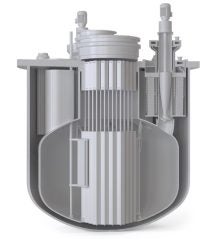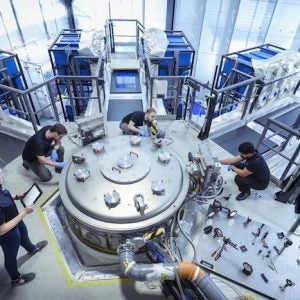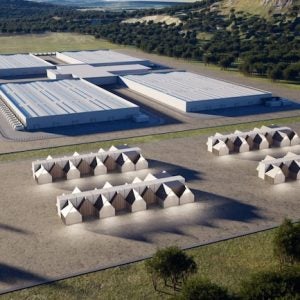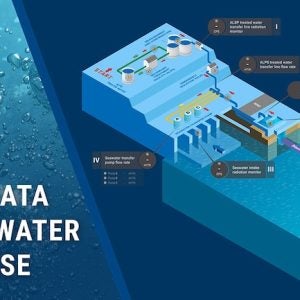
UK-based nuclear start-up newcleo said it has completed the preparatory stage set up by the French authorities for developers of small modular reactor (SMR) projects to facilitate, secure and accelerate the review of licence applications.
During the preparatory stage, French nuclear regulator Autorité de Sûreté Nucléaire (ASN) and the Institute for Radiological Protection and Nuclear Safety (IRSN – Institut de Radioprotection et de Sûreté Nucléaire) assessed the maturity of newcleo’s project and discussed all safety options for its Lead cooled Fast Reactor (LFR) projects and the associated nuclear fuel manufacturing plant.
Since its launch in 2021 newcleo has signed a long list of agreements, acquisitions and collaborations. Newcleo initially announced its incorporation with the closing of a $118m initial capital raising and the acquisition of Hydromine Nuclear Energy. In June 2022, it closed a €300m equity raise and contracted France’s Orano for feasibility studies on the establishment of a mox production plant.
In December 2023 newcleo said that it had been selected as part of the “Innovative Nuclear Reactors” call for projects under the “France 2030” investment plan and aims to commission a 30 MWe lead-cooled fast reactor (LFR 30) by 2030, as well as a pilot unit for the manufacture and multi-recycling of mixed oxide (mox) fuel for fast reactors. The project represents a total investment in France of €3bn ($3.3bn) between now and 2030. The company signed three strategic partnerships at the World Nuclear Exhibition in Paris with Assystem, Ingérop and Onet Technologies to develop technology France.This was followed in January 2024 by a strategic and industrial partnership with French micro-reactor developer Naarea
Following the construction of the LFR-30 and mox plant in France, Newcleo is planning to construct a 200 MWe first-of-a-kind commercial unit (the LFR-AS-200) in the UK by 2033. Earlier in April the Nuclear Industry Association applied to the UK government for a justification decision for Newcleo’s LFR-AS-200. Such a decision is one of the required steps for the operation of a new nuclear technology in the country.
Newcleo said the conclusion of this “preparatory stage” with French regulators follows numerous technical meetings involving approximately twenty specialised experts from the authorities as well as the development of a range of preparatory documents covering various technical topics.
The achievement of this preparatory phase is to be followed by the submission of official technical options for both the LFR and the mox manufacturing plant. The French authorities will then establish a written advice which due consideration along with other considerations derived from the preparatory phase discussions, will allow a faster process to grant the necessary authorisation decrees to newcleo.
Stéphane Calpena, newcleo’s Global Licensing Director, commented: “We are all thrilled that our project has reached this key milestone in the rigorous process leading newcleo to obtain the required authorisations for the launch of this new sustainable nuclear sector. The constructive discussions we have had with experts from the French authorities have been invaluable, enabling us to guide our design choices and associated safety requirements to meet the exceptionally high standards that French nuclear energy is known for.”
The newcleo website now includes a mock-up of its reactor design and some additional technical information. claims to “capitalise on 30 years of R&D activity in metal-cooled fast reactors and liquid-lead cooling systems. Newcleo says its reactor design “has been optimised over the last 20 years leading to the concept of an ultra-compact and transportable 200 MWe module with improvements in energy density compared to other technologies”.
Currently, however, the only operating liquid metal-cooled fast reactors are in Russia, using sodium as the coolant. Russia is also constructing the world’s first lead-cooled small modular reactor (Brest-OD-300) in Seversk as part of a facility to demonstrate an on-site closed fuel cycle, including novel fuel fabrication. This reactor, based on decades of complex research and development, and supported by the entire Russian nuclear industry, is due to begin operation in 2029. As yet, despite its rapidly growing list of acquisitions and co-operation agreements and optimistic timeline, newcleo’s technology remains in the very early conceptual design stage.






